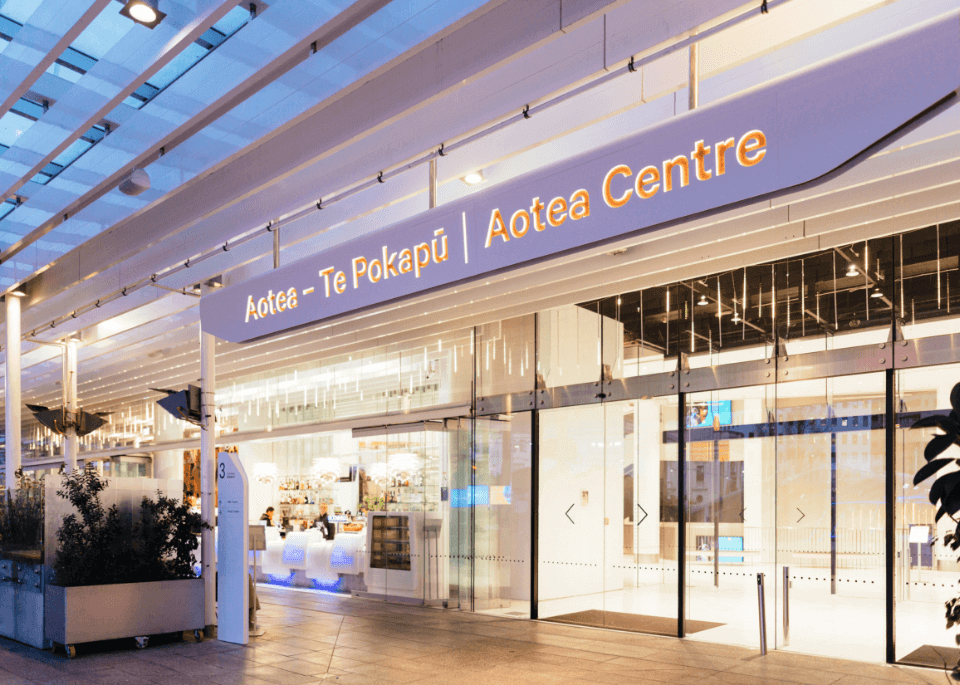Auckland Conventions, Venues & Events (ACVE) is proud to achieve carbonreduce certification from Toitū Envirocare as a business unit of Regional Facilities Auckland (RFA).
This means ACVE is taking action on climate change by actively identifying, managing and minimising the impacts of our operations on the environment.
ACVE’s Toitū carbonreduce certification is good news to event organisers looking to align their organisation’s sustainability values with sustainability-conscious venues.
In mid-2019, RFA embarked on the Toitū carbonreduce certification programme, committing to progressively reduce its total operational emissions on an annual basis.
This followed the development of an organisation-wide sustainability strategy focused on waste minimisation, energy and carbon management, water management, green building construction and facilities management, sustainable transport, procurement and minimising chemical usage.
Data from across RFA’s business units, including ACVE, was captured to quantify its operational carbon emission footprint, focusing on activities that generate greenhouse gas emissions, contributing to climate change. The results are captured in RFA’s inaugural sustainability publication, Our Footprint.
RFA’s carbon emissions inventory and reduction plans were independently audited by Toitū Envirocare, who verified that RFA’s management plans meet the requirements of the international standard for emissions management.
RFA also recently joined the New Zealand Green Building Council.
RFA CEO Chris Brooks says, “We are excited about our Toitū Carbon Reduce certification and Green Building Council membership – both important steps on our journey to becoming a more sustainable, environmentally-friendly business.”
Sustainability at ACVE venues:
- Auckland Zoo was the first RFA venue to gain Toitū carbonzero certification in 2017. In 2019, it reduced its operational waste by 44% and water use by 26%.
- Shed 10, the century-old historic cargo shed on Queens Wharf, has a solar panel system installed on its roof that covers an area of 400sqm. The energy generated powers lighting for the building and is estimated to be equivalent to the annual energy use of ten households.
- Around 75% of the theatre and house lights in the Aotea – Te Pokapū | Aotea Centre, Auckland Town Hall and Bruce Mason Centre have been replaced with energy-saving LEDs.
- All event waste from the Aotea – Te Pokapū | otea Centre, Auckland Town Hall, and The Civic is hand-sorted at the Aotea Arts Quarter’s own recycling centre. Waste and recycling volumes are closely monitored and a landfill diversion target of 75% by 2021 has been set.
- ACVE’s venues are conveniently located close to public transport, airport shuttles and buses, and accommodation, reducing the need for private vehicles and transport.
- Thoughtful restoration and maintenance of the four Historic Place Category 1 venues in ACVE’s portfolio (Auckland Art Gallery, Auckland Town Hall, Shed 10 and The Civic) ensure each venue’s cultural and historical significance is preserved. We maximise their use to reduce demand for new buildings and therefore new products, materials and construction waste.
- Water-filling stations are installed at most of our venues for visitors to refill their water bottles, reducing single-use plastic bottle litter.
- The Cloud began life as a modern, semi-permanent inner-city fan zone during the 2011 Rugby World Cup. Today, it is repurposed as a versatile and sought-after event venue on Auckland’s waterfront.
- Go Media Stadium has introduced reusable Globelet cups for all major concert events held at the venue, reducing the need for 110,000 single-use cups during the 2018/2019 concert season.
- ACVE works with accredited caterers who provide sustainability-conscious solutions for events. This includes offering locally sourced produce, sustainable menus, eco-friendly cutlery and crockery options, as well as repurposing or donating excess food to charity.
Eco-friendly and reusable products offered and sourced for events include:
- Water jugs, water glasses and canned water instead of plastic bottled water
- Reusable cup schemes
- Biodegradable wristbands for Auckland Zoo events
- Digital screens, which are replacing printed posters around RFA venues
- Reusable merchandise such as glass coffee cups, reusable shopping bags and bamboo notebooks.

Related:
- Sustainability
- Our Footprint by Regional Facilities Auckland

